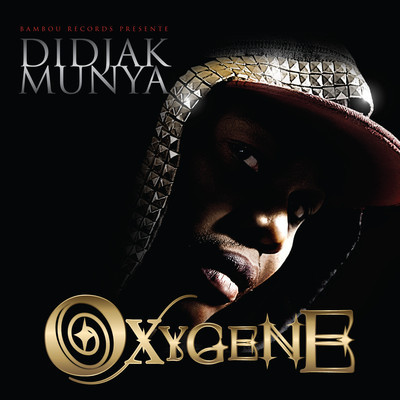Didjak Munya, of Kinshasa, has been a widely respected member of the city’s hip-hop community for over 15 years. With Oxygène, his second solo album and first international release, Didjak acts as both performer and producer, and on the album, his talents in both areas shine brightly.
Oxygéne’s sound is a lush mixture of soukous ndombolo – the fast paced form of rumba that came to popularity in Congolese during the '90s – and hip-hop. Didjak’s production, coupled with his deft flow and impassioned lyrics (delivered mostly in French), makes for an album that is as upbeat and danceable as it is thought provoking and honest. Acoustic guitar strums, marimba licks, and classic Congolese rhythms permeate the album, making it sound as though Didjak were rhyming over a full band, in contrast to the traditional DJ plus MC combo, and at no point can a record scratch or a sampled breakbeat be heard.
Didjak’s lyrics cover a multitude of themes, from life on Kinshasa’s rough streets to a lament on the Congolese diaspora and more. On “Riche à Sa Mort,” he tells the story of a neglected son, who is ignored by a father who chooses to spend his money on “prostitutes and luxury cars” rather than his own flesh and blood. Elsewhere, Didjak rebuffs haters and critics, saying “I’m like the sun/I’m here for everyone” on “Munya Wetu,” one of the album’s standout tracks.
While Didjak Munya is clearly the star of the show on Oxygène, the album boasts an impressive list of featured performers as well. Renowned Congolese singer-songwriter Lokua Kanza belts the terrifically catchy hook to “Souza,” while the rapper Grödash trades verses with Didjak on “Kamulangu.” Nearly all of the album’s featured performers are from the DRC, and many of them are peers of Didjak in Kinshasa’s rap scene.
Didjak Munya’s passionate, story-driven lyrics, alongside his production's impressive ability to mix the soukous with hip-hop, make for a consistently fascinating listen. Oxygène succeeds as a profound lyrical showcase, a hip-shaking dance party, and a love-letter to Didjak’s home city at the same time. He juggles his two jobs as main MC and main producer with a grace and skill that few artists are ever able achieve as rapper/producers. Oxygène shows that Munya not merely an ill rapper with a nice flow, but, rather, an enormously talented musician and a poetic lyricist in the great Congolese tradition. Hopefully, Oxygène is only the beginning of what will be a remarkable body of recorded work.








